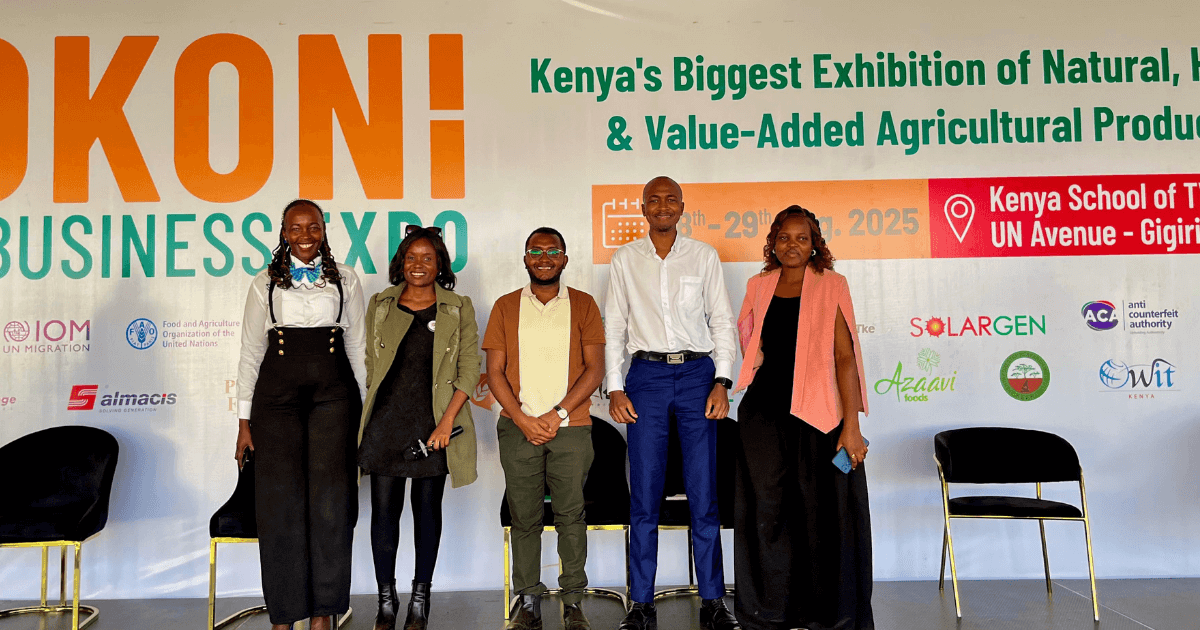
Saabiko Group of Friends’ Write to Learn Project in Kibera – Donate
Going to school in a slum area is challenging. Despite the unconducive environment, poverty hits hard and makes children lack even the most basic things

Going to school in a slum area is challenging. Despite the unconducive environment, poverty hits hard and makes children lack even the most basic things

Imagine walking into a classroom where children are eager to learn, yet some of them have no books, no pens, and no pencils. They sit

MuemAction Post joined the Sokoni Agribusiness Expo at the Kenya School of TVET, where Executive Director Boniface Harrison highlighted our work in building youth capacity for climate-smart agribusiness, leveraging AI, and advancing policy support. The event featured exhibitions and united government, civil society, development partners, and private sector stakeholders.

This article highlights the inspiring journey of Johnson Ong’any, founder of Saabiko Group of Friends, and his Write to Learn Stationery Drive. From growing up in Kibera without a pen to graduating from university and taking part in global platforms.

This article highlights the importance of shifting the climate change narrative from purely scientific data to human-centered storytelling. While data remains crucial, the lived experiences of people in the Global South and grassroots communities bring the crisis closer to home. The author emphasizes that storytelling can bridge the gap between awareness and action by making climate change more relatable and urgent. It also challenges the focus on catastrophe, encouraging the inclusion of stories of hope, resilience, and innovation. The article calls on youth, indigenous voices, scientists, and the media to embrace storytelling as a tool for change. Through honest and human stories, climate action can move beyond statistics to spark empathy, ownership, and a collective drive to shape a better future.

This article shares key measures for promoting safe and impactful civic action in Kenya, in light of the recurring trend of violent protests. It outlines ten practical recommendations to guide both protestors and law enforcement in ensuring demonstrations remain peaceful, lawful, and effective. Written by a community development and social work professional, the article urges citizens to desist from actions that lead to violence while exercising their constitutional right to protest. It ends with a call for justice, peace, and responsible civic engagement.

Kenya’s 2025/26 budget reveals a major expansion in social welfare. Inua Jamii beneficiaries now exceed 428,000, with 1.2 million elderly supported. A new Climate Worx programme targets 110,000 youth, while SHA health coverage rises to 22 million. These shifts mark key policy changes in welfare, youth, and healthcare support.

Discover how the Finance Bill 2025 will affect your daily life in Kenya. Learn about VAT changes, tax exemptions, digital service taxes, and more in this 2-minute read.

On 2nd May 2025, MuemAction Post had the honour of partnering with SMACHS Foundation for the Climate-Smart Agripreneurs Workshop, a transformative virtual session held via Zoom. This was no ordinary webinar. It brought together 100 youth from across the country to explore practical, profitable, and sustainable ways to engage in agriculture while tackling climate change. SMACHS Foundation proudly sponsored 20 youth delegates to attend, giving them access to game-changing knowledge in basics to climate-smart agriculture, agritech innovations, value addition, agribusiness finance, and even urban farming.

The article reflects on the need for a culture of continuity in civic engagement in Kenya, inspired by the surge of participation during the 2023 Finance Bill protests. It argues that while Kenyans are willing to raise their voices in times of crisis, there is a tendency to revert to “business as usual” once the moment passes.
This pattern highlights a deeper issue: a lack of sustained civic literacy and a tendency to prioritize quick wins over long-term change. The author emphasizes that meaningful change requires a shift in mindset—from reacting only during moments of outrage to engaging consistently and thoughtfully, even in quieter seasons.
The piece calls for making information accessible, fostering civic learning, and encouraging participation beyond elections.
Ultimately, it advocates for building a culture where showing up consistently, no matter how small the effort, becomes the norm.